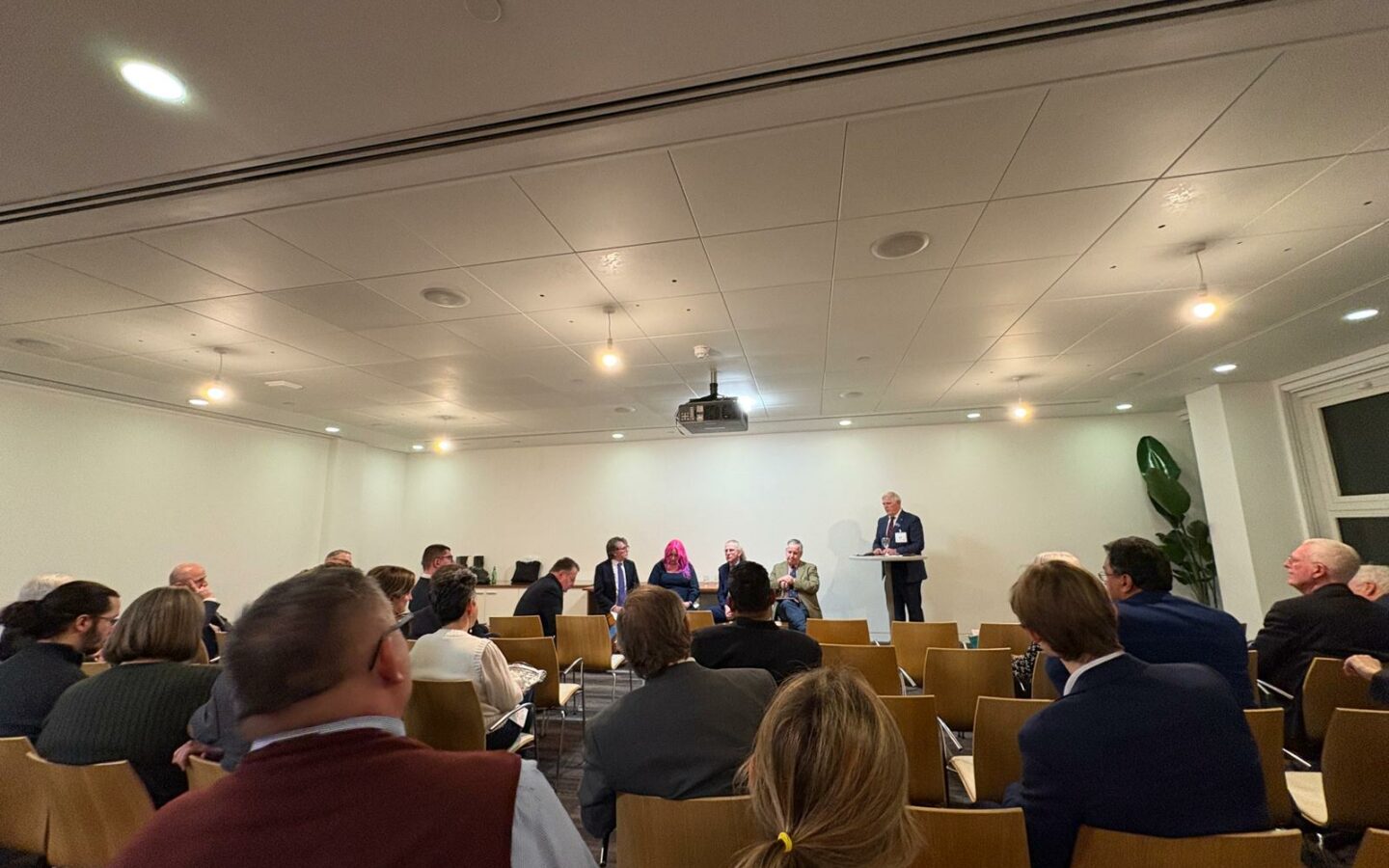Seafarers, maritime charities and shipping companies were among those in attendance at a well-supported seminar on the effectiveness of the Maritime Labour Convention.
Organised by the Nautical Institute on Wednesday night, the ‘Maritime Labour Convention 10 Years on – Is it working for the seafarer’ tackled the vital issues on whether the legislation is working for seafarers after a decade in action.
Discussing the successes and challenges of the Convention and its ongoing role in supporting seafarers’ rights and welfare were a panel of industry experts including Tim Springett (Policy Director at UK Chamber of Shipping), Charles Boyle (Legal Director Nautilus), Sara Jones (MD of Shipserve International) and Tim Hill (CEO of Stella Maris).
Mr Springett, who led the UK shipowner delegation that negotiated the ILO Maritime Labour Convention, 2006, spoke about the ambitions of the Convention and the importance in promoting compliance, while Mr Boyle laid out the legal framework of the policy.
Ms Jones outlined the nature of a MLC claim, explaining how 30-40% of claims are presented to a club.
And Mr Hill, whose charity is a member of the Merchant Navy Welfare Board and has over 1,000 chaplains worldwide delivering welfare provision, discussed the most common challenges faced by seafarers from mental health and shore leave to connectivity and bullying on board ships. He added, however, that 90% of what they see is “really good practice”.
The informative webinar, chaired by the CEO of the Nautical Institute Captain John Lloyd, was rounded off with a series of quickfire questions from delegates.
What is the Maritime Labour Convention?
The Maritime Labour Convention (MLC) came into force for the UK on 7 August 2014 and sets out the minimum working and living rights for seafarers.
The Convention, ratified by over 100 countries, aims to achieve both decent work for seafarers and secure economic interests in fair competition for quality shipowners.
An estimated 90% of world trade is carried on ships and seafarers are essential to international trade and the international economic and trade system.
The new labour standard consolidates and updates more than 68 international labour standards related to the maritime sector adopted over the past 80.

